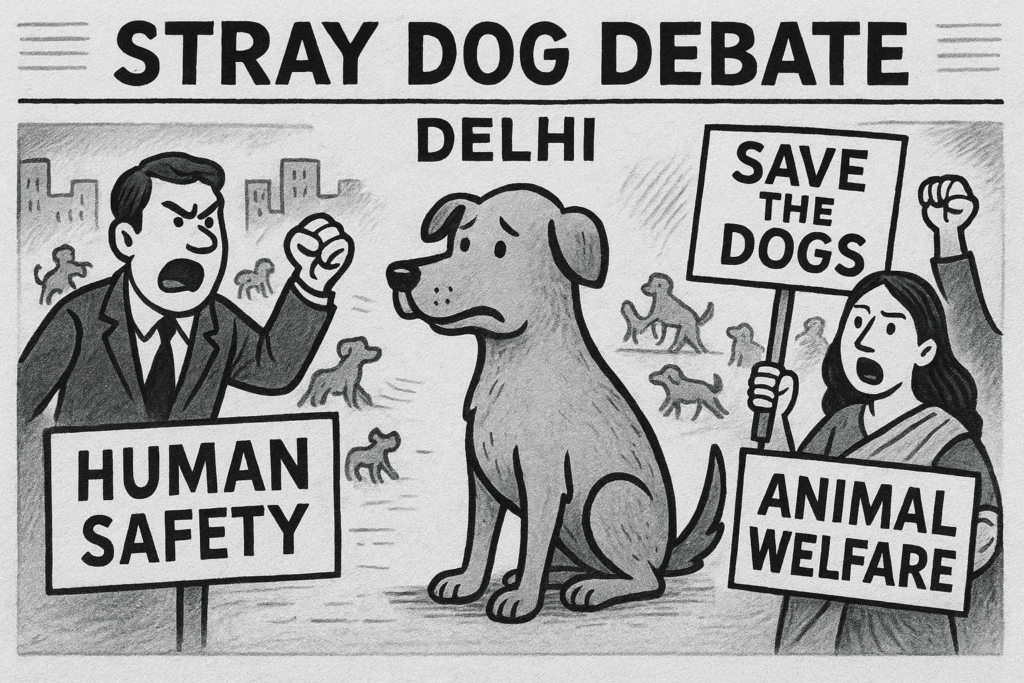Delhi is currently at the epicenter of a heated debate surrounding its growing stray dog population and the safety concerns it poses to citizens. With an estimated 800,000 to 1 million stray dogs roaming the city’s streets, recent court orders and government policies have brought this issue into sharp focus.

What Sparked the Crisis?
- Government and Supreme Court Action: In August 2025, the Supreme Court directed authorities in Delhi to remove all stray dogs from public spaces and relocate them to shelters within eight weeks. This was a response to increasing incidents of dog bites and rabies, with over 37 lakh dog bite cases reported annually across India, and thousands occurring in Delhi alone.
- The new order diverges from past practice, which required sterilized and vaccinated dogs to be returned to their original locations — as per the Animal Birth Control (ABC) Rules. Now, the court insists that once stray dogs are sterilized, they shouldn’t be sent back, aiming instead for permanent sheltering.
Divided Opinions
- Supporters: Some citizens and policymakers argue these steps are vital for human safety, particularly in protecting children from dog bites and rabies. The Supreme Court emphasized the need for infants and young children to be able to move freely without fearing stray dog attacks.
- Opponents: Animal rights activists and several public figures have strongly opposed the mass removal. They warn that removing sterilized and vaccinated strays may produce a “vacuum effect,” allowing unsterilized, unvaccinated dogs to move in. This could actually heighten public health risks and create ecological imbalance.
- Critics also highlight logistical challenges: Delhi lacks adequate resources and shelter space for such a vast number of dogs, and mass relocation may result in overcrowded facilities and compromised welfare.
How Are Authorities Responding?
- Shelter Construction: The Municipal Corporation of Delhi (MCD) is working to identify vacant land for new shelters. Plans are underway to begin the process, with initial phases already seeing the capture of aggressive dogs based on complaints from residents.
- Sterilization and Vaccination: Existing ABC centers, which are meant for sterilizing and vaccinating stray dogs, can accommodate up to 2,000 dogs but are far from sufficient given the scale of the issue.
- Public Protests: The ruling has triggered widespread protests by animal lovers and activists, with several detentions occurring during demonstrations. Opponents fear cruelty and chaos, highlighting that family safety and animal welfare must go hand in hand.
The Path Forward
This issue represents a complex contest of priorities: safeguarding human life versus ensuring compassion for street animals. There is no simple answer, as both sides present legitimate arguments and concerns. Experts emphasize the need for robust sterilization, vaccination, and improved waste management as sustainable solutions, rather than relying on mass removal alone.
Conclusion
The stray dog issue in Delhi is not just about animals — it is a question of justice, security, and empathy. The ongoing debate will shape policies and public attitudes for years to come, challenging the city to balance compassion and practicality in dealing with its four-legged residents.


